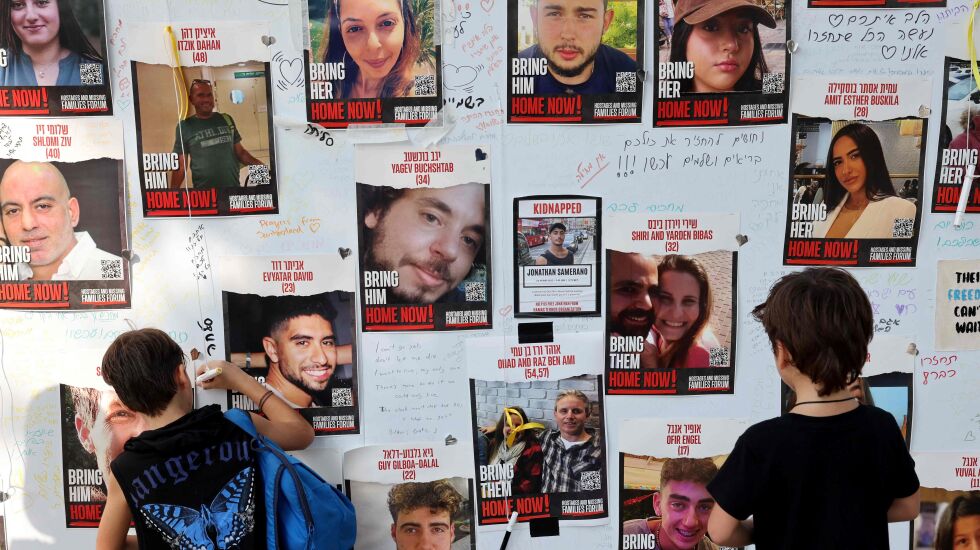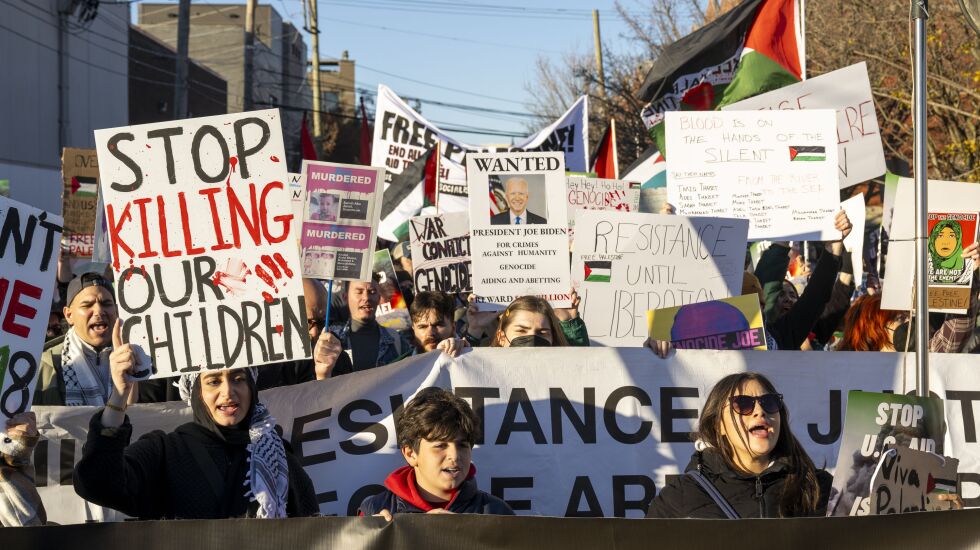
A four-day truce between Israel and Hamas was welcomed in the Chicago area by groups spanning the political spectrum on Wednesday.
Some called it “good news” that the warring parties agreed to release 50 Israeli hostages in exchange for 150 Palestinian prisoners.
Others were grateful that more humanitarian aid would be allowed into Gaza, which has been under siege since Hamas gunmen took roughly 240 prisoners during its Oct. 7 attack on Israel.
Palestinian advocates in Chicago said the ceasefire is a step toward peace but that Israel could have agreed to the terms of the cease-fire earlier.
The Chicago-based U.S. Palestinian Community Network said similar truce terms had been offered by the Unified Palestinian Resistance “from day one.” Still, the USPCN was relieved the agreement could bring about a faster end to the war.
An “agreement like this, and future ones, will not only give the Gazans some literal and figurative air but change the political dynamics as well,” Hatem Abudayyeh, chair of the USPCN, said in a written statement. “It will force additional concessions that will ultimately lead to a lifting of the siege.”
Yinam Cohen, consul general of Israel to the Midwest, called the ceasefire and hostage agreement “good news.”
“We’re talking about mostly children and mothers who were abducted from their homes 47 days ago and held by Hamas in dire conditions,” Cohen said in an interview.
Cohen said he is “optimistic but not celebrating” the ceasefire, citing times Hamas broke truces in the past.
The identities of the hostages to be released won’t be known until later, Cohen said. According to the agreement, he said, Israel will be notified of the identities of the hostages to be released a day before Hamas releases them.
Cohen said he looks forward to getting information on the condition of Hersh Goldberg-Polin, whose parents were born and raised in Chicago. Goldberg-Polin was last seen being abducted from a music festival by Hamas. His arm was blown off in the fighting.
“We don’t know if he is dead or alive,” Cohen said.
Protesters calling for a ceasefire had blocked the entrance of the Israeli consulate in Chicago on Nov. 13 at the Ogilvie Transportation Center. More than 100 people were arrested in the action organized by Chicago chapters of Jewish Voice for Peace, IfNotNow and Never Again Action.

State Rep. Abdelnasser Rashid, D-Berwyn, called the ceasefire “welcome news.” Rashid, the first Palestinian American to serve in the Illinois General Assembly, said the deal provides “some relief, some respite, but this has to be permanent.”
“We can’t go back to Israel’s genocidal violence once this ceasefire is over,” Rashid said in an interview. “We need a permanent ceasefire, then truly reckon with the true cause of this conflict.”
U.S. Sen. Dick Durbin, D-Illinois, said he’s “relieved and heartened” by the deal that also allows humanitarian aid to enter Gaza.
“It is equally important to support innocent civilians who so often become collateral damage and bear the brunt of suffering during periods of conflict,” Durbin said in a written statement.
The Jewish United Fund of Metropolitan Chicago called the ceasefire “bittersweet.”
“We, of course, rejoice at the prospect of hostages being returned home to their loved ones,” Jay Tcath, an executive vice president of JUF, said in an interview. “We remain committed, as does all of Israel, in the return of the remaining 200 hostages.”
He said the group is also relieved that the International Red Cross will be allowed to visit the remaining hostages to check on their health conditions and offer treatment.
“This is a joyous moment for those whose loved ones are being returned,” Tcath said. “It doesn’t end the cruelty of keeping 200 others hostages.”
U.S. Rep. Delia C. Ramirez, D-Chicago, said the deal is a “step in the right direction” but not enough.
“Watching bombs fall on children and tensions escalate in the West Bank should only strengthen our commitment to diplomacy, de-escalation, and an enduring ceasefire,” Ramirez said in a written statement.
More than 11,000 Palestinians, two-thirds of them women and minors, have been killed since the war began, according to the Health Ministry in Gaza. At least 1,200 people have died in Israel, mostly civilians killed in the initial Hamas attack.







